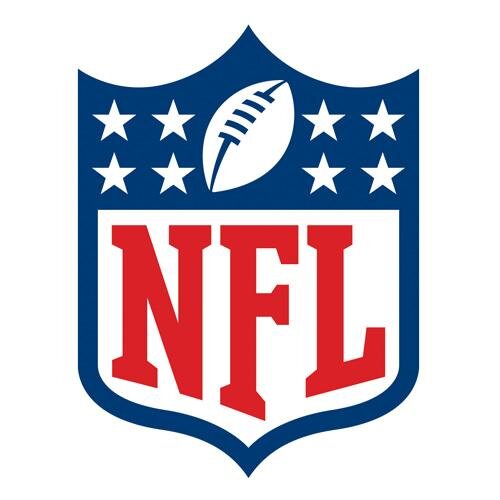The NFL’s unprecedented month of woes has elicited reactions that are unfortunately falling neatly along right/left lines. Writing for SBNation.com, Jane Coaston says the NFL itself is essentially evil:
Football has never been good. There has never been a time at which football, a game dependent on both incredible skill and irredeemable violence, has been good. Don’t think that football has not always been a violent game full of terrible people. It has been, and is, and will likely always be.
Joe Namath was a “lovable rogue” only because we did not have First Take back then, and because Colin Cowherd would have set him on ritualistic fire. Every football superstar you can think of has likely done something that would offend your most cherished beliefs. The great secret of all of history is that everything has always been kind of bad but slowly, painfully, it gets better. That is true in football as well. We just have the unique privilege of knowing exactly how completely terrible it is.
Erin Gloria Ryan at Jezebel agrees:
But if you consider yourself a moral consumer who cares about equality, there is no excuse for continuing to be a fan of the NFL. “Not all NFL players!” is not an excuse when leadership is rotten from the top down. “But I’m barely contributing anything bad!” is as valid an excuse for continuing to support the NFL as it is for littering. No matter how fun it is, how thrilling, if you’re a person who claims to care about women, watching the NFL is morally indefensible until something changes. No one can be perfectly morally consistent at all times or completely ethical in everything they consume (that would be exhausting), but this one seems like a gimme.
If you won’t eat at Chik-fil-A because the company’s leadership doesn’t support gay marriage (because you believe in equality!) but you still watch NFL football after its leadership made it clear for the millionth time that it shelters and supports domestic abusers, you are a [expletive] hypocrite.
That passage seems to me more revealing about the author’s particular ethical approach than anything. Mentioning Chick Fil-A as an “equality” issue which can more or less be compared to domestic abuse is not a credibility-winner. It only makes sense in a zero-sum ethic which reduces all moral categories to one-‘equality’-and pursues an exclusivist approach in determining who is moral and who isn’t.
ethic which reduces all moral categories to one-‘equality’-and pursues an exclusivist approach in determining who is moral and who isn’t.
Coaston’s argument doesn’t seem much better. It sounds as if she’s responding to a claim no one is making, that the NFL is a bastion of virtue and goodness that should be given every benefit of the doubt. Ironically, this might be evidence that Coaston and her fellow feminist commentators have themselves been hoodwinked by the NFL’s PR machine. At Commentary, Jonathan Tobin acknowledges that the NFL has strategically marketed itself as a community helper. Understanding that this posture is one of style and not substance, Tobin argues, should make us see the NFL as neither holistically good nor holistically evil:
But though it’s hard to sympathize with Goodell or any of the other rich people that arrogantly preside over the sport, the rage against the league is as disproportionate as the league’s swaggering image. Like other industries, including other forms of popular entertainment, the NFL employs its share of thugs. But contrary to the pop psychology being spouted on the networks about football and domestic violence, this might be a good moment to point out that criminal louts were beating their wives, girlfriends, and children, long before Yale’s Walter Camp sketched out some of the key rules that differentiated American football from rugby and Princeton played the sport’s first college game against Rutgers.
In other words, the NFL is a product, one that comes in do-good packaging but is a reflection–not a shaper–of cultural values.
A powerful piece of evidence for this thinking is the Rice incident. The overwhelming majority of media coverage has focused on a Watergate-like attempt to find out what Commissioner Roger Goodell knew (specifically, what he knew about a video recording of Rice’s vicious knockout of Jenay Palmer) and when he knew it. Lost in this inquisition are hard questions about why Rice’s judge allowed him to sidestep jail and enter a pretrial prevention program. The same judge denied the same pretrial program to a single mother who relocated to New Jersey possessing a handgun that was licensed in Pennsylvania but not yet registered in her new home state. She is now facing prison time, but Judge Michael Donio has yet to face the firestorm that has pursued Goodell. This seems to accord with the notion that domestic violence is not addressed strongly enough in the culture at large, a fact which is reflected now in the NFL. (As an aside, one wonders if folks on the Left like Coaston are unwilling to criticize a judge tough on guns but soft on domestic violence.)
So Coaston and Ryan mistakenly reduce morality to corporate encroachment of equality. But simply going in the other corner doesn’t quite work here either. Rich Lowry misses the mark, I believe, by changing the subject so as to put the media in the dock.
In recent weeks, you’d think that the fate of justice in America depends on how harshly the NFL punishes a few miscreants. Only if Ray Rice and accused child-abuser Adrian Peterson are banished from the game do women and children have a chance of living in a country where they are safe from violence and abuse…
No matter how many sermonettes we hear to the contrary, the NFL is not the key to fighting domestic violence. In fact, it has no connection to it whatsoever. Domestic violence declined 63 percent from 1994 to 2012, according to the Justice Department — even though the NFL had a lenient policy toward domestic abusers across this period.
I get what Lowry is saying, but isn’t this the same mistake that Coaston makes? Simply because the NFL cannot fight domestic abuse the way that some say it should doesn’t mean its policies can be “learn as you earn.” That certainly isn’t the approach that commissioner Goodell has taken with his substance abuse. Until this week the NFL’s collective bargaining agreement specified a four game ban for a first time offense with marijuana. That CBA, by the way, was agreed to by the players union only after two weeks of preseason in 2012 were lost to a lockout. Goodell and the NFL were willing to strain profits in order to have a tough drug policy. It’s a fair and important question why such toughness evaporated when players hit women.
The most expensive media air time in the world is the NFL’s championship game. That fact alone is enough for me to dismiss Lowry’s complaints that the media should have better things to do than cover the NFL’s culture problems. Again, I think Tobin is exactly correct here: “If you ask people to treat you as gods, you can’t complain when they find out you have feet of clay and start talking about tearing down the altars where false deities are worshipped.”
Yes, and here we are getting closer to how the NFL can truly go forward on domestic violence. Violence against women and children is an ugly manifestation of self-worship and flexing of power. It’s highly plausible that the football’s swagger and success has fostered a climate of invincibility, buoyed by athlete-olatry that occurs when many of these players are in high school. If you’ve skirted academic requirements your entire scholastic life, you might find yourself with a worldview that is antithetical to the sacrifice and self-control that relationships–all kinds, not just romantic ones–demand.
Correcting this culture takes more (but not less) than rule changes. It requires a transformation of the imagination, one that stops cutting corners on life and responsibility for the sake of sports. It requires that sports fans (like me) lead the way in reversing the placement of athletics above critical discourse. What A.O. Scott refers to as the “unassailable ascendency of the fan” has created a sports culture that is beyond criticism because of the tribal identity and purpose it bestows. This must be fixed at every level. The demotion of football from pantheon to pastime will not eliminate domestic abuse, of course, but it will bring football players and fans back to reality, a reality in which everyone is created equally in the image of God, regardless of skills.












